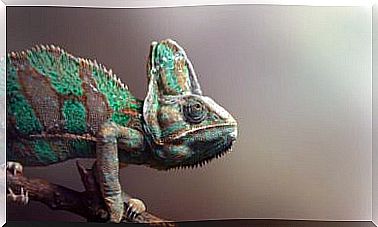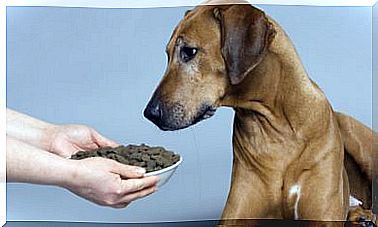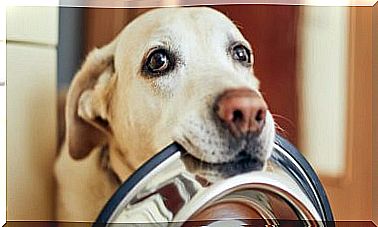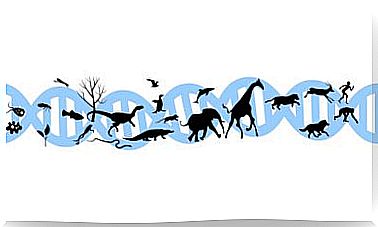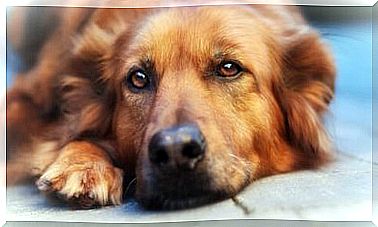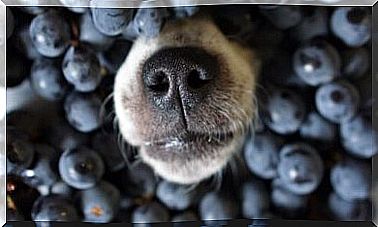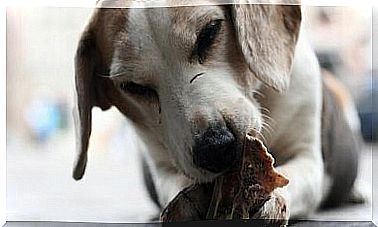What Animals Can Suffer From Anorexia?
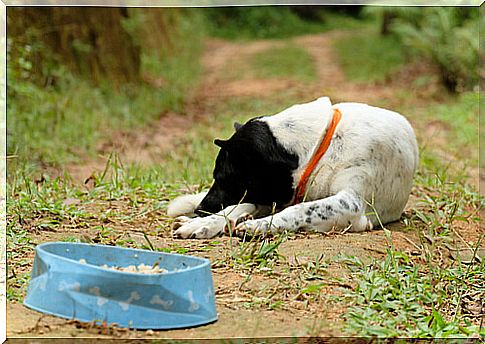
Anorexia is a term used to describe the situation in which a pet loses its appetite. In these cases, the pet may not want or can not eat.
Before continuing to delve into the subject, it must be clarified that “appetite” and “not hunger” mean the same thing. On the one hand, hunger is physiologically awakened by the body’s need for food; while appetite becomes psychological, since it depends on memory and association.
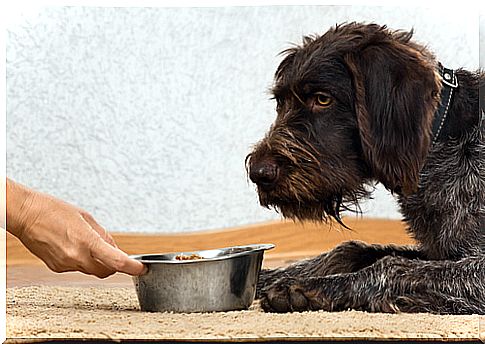
Possible causes of poor appetite in animals
There are many causes for anorexia, the most common of which are:
- Cancer.
- Internal parasites.
- Tongue infection
- Inflammatory ulcers.
- Dental disease
- Enlarged tonsils.
- Presence of a foreign body.
- Infections that produce fever.
- Any disease of the stomach or intestines.
Other cases in which anorexia may occur:
- Stress from loud noises like fireworks can cause anorexia.
- Territorial animals, such as cats, may stop eating when intimidated by the presence of another pet in the home.
- Arthritic pets, postoperative pets, or those in body pain can also suffer from anorexia.
How will the vet act?
Depending on the symptoms that your pet presents, the vet will consider carrying out a series of measures or others. However, you can expect it to do the following:
- Most vets will start by asking some basic questions to understand the problem: When did you first notice a decreased appetite or anorexia? What is your pet’s normal appetite like?
- Next, you will do a physical evaluation of the animal.
- If you consider it, it will order certain lab tests to be done. Blood, stool, and urine tests can be helpful in clarifying suspicions of underlying diseases.
- He will order x-rays to be done. X-rays can be helpful in these cases, especially when orthopedic pain, cancer, or gastrointestinal disorders are suspected.
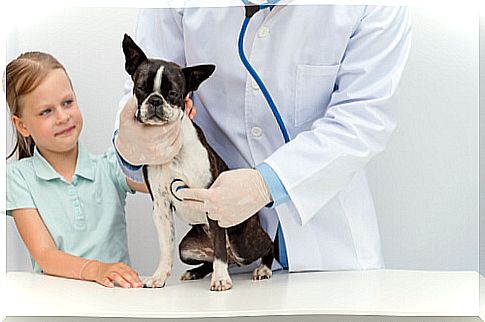
Anorexia in dogs
A temporary loss of appetite in your dog is not something you need to worry about right away. Like us, dogs are sometimes not hungry.
Sometimes a stressful situation or an upset stomach can be to blame, but these things are often resolved within a day. If more than 48 hours pass and the dog still refuses to eat, then it should be taken to the vet immediately.
The main concern arises when a dog that is often enthusiastic about his food loses interest in it. This sudden loss of appetite is an indicator that something is wrong.
Cats can also suffer from poor appetite
Cats enjoy living their routine, and any change in it can make them lose their appetite. Traveling, moving, or even welcoming a baby or new pet into the family can be stressful. On many occasions, cats deal with stress by refusing to eat.
In any case, it is important to keep in mind, if your cat is not eating, that it may be the result of a disease. Infections, pancreatitis, kidney failure, cancer, and intestinal problems can cause a cat to stop eating.
Anorexia is particular to snakes
Except for some female snakes just before egg laying and snakes undergoing planned hibernations, it is not normal for captive snakes to refuse to eat for more than a month or two. Many temperate snakes tend to slow down their feeding rate in the fall as the light cycle slows.
Snakes often stop eating temporarily when they are about to shed. It should be noted that just before molting, snakes cannot see very well and are often irritable. However, once they shed their skin, their appetite returns to normal.
However, if anorexia is allowed to continue for more than a few weeks, it can predispose the animal to infection. Anorexia is a sign that a snake doesn’t feel safe enough in its cage.
Anorexia in rabbits can be serious
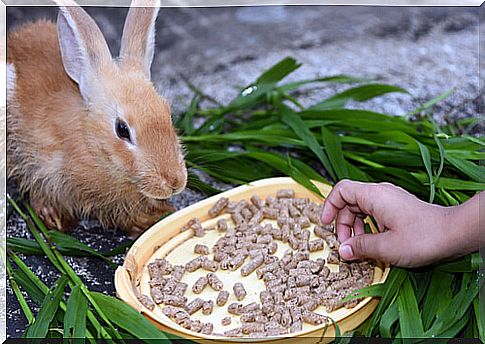
Generally, rabbits want to chew and eat whatever is within their reach. However, when they are suddenly listless and uninterested in food, this may be an emergency situation.
The fact that a dog or cat or other pet skips a meal may not be a cause for alarm. However, when a rabbit does, there may be a problem that needs to be addressed as soon as possible.
The most common reason for loss of appetite in rabbits is a problem called: gastrointestinal stasis. This occurs when peristalsis (the contractions in the intestines that push food through the gastrointestinal tract) slows or stops. In rabbits, this is extremely dangerous and can cause death if not treated properly.
Final note
As you can see, there are animals that can suffer from anorexia at certain times, for various reasons. Therefore, it is important that you inform yourself well, depending on the pet you have, and know when it is time to go to the vet for an immediate check-up.
